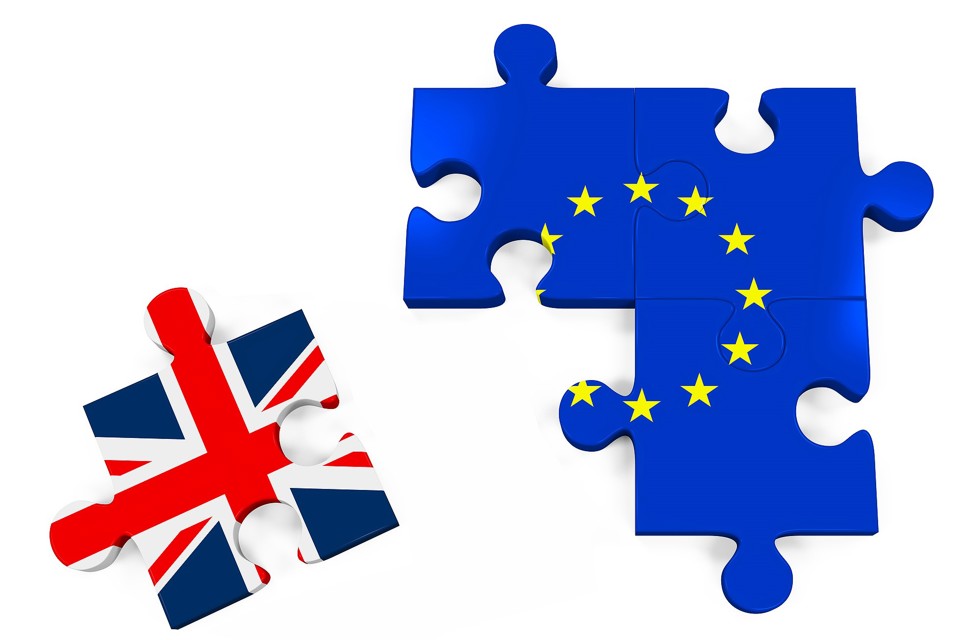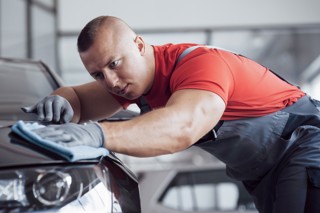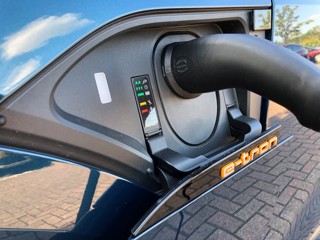A new study compiled by the Society of Motor Manufacturers and Traders (SMMT) has found that preparations for Brexit have already cost the UK’s automotive sector £735 million.
The industry body issued a last-gasp plea for MPs to reach a zero-tariff trade deal with the EU this morning (November 10) alongside details of its findings, which showed more than £235m had been spent by the sector in 2020 alone.
It claimed that a ‘no deal’ outcome, or failure to achieve workable deal for auto, would result in a £47bn hit to UK sector over next five years – on top of the ongoing cost of the COVID-19 coronavirus pandemic.
SMMT chief executive, Mike Hawes, said: “As the UK-EU FTA negotiations enter the endgame, now is the time for both sides to deliver on promises to safeguard the automotive industry.
 “Securing a deal is absolutely critical but it cannot be any deal. To work for UK Automotive it must deliver for UK products and that means securing the right terms and conditions that allow our exports – now and in the future – to be zero tariff and zero quota trade.
“Securing a deal is absolutely critical but it cannot be any deal. To work for UK Automotive it must deliver for UK products and that means securing the right terms and conditions that allow our exports – now and in the future – to be zero tariff and zero quota trade.
“A deal that failed to achieve this would be the equivalent to no deal at all, devastating jobs and slamming the brakes on the UK’s ambitions to be a world leading manufacturer and market for electrified mobility and battery technologies.”
Automotive is one of the UK’s most valuable economic assets, worth some £78.9 billion, exporting more goods than any other sector, and supporting some 180,300 manufacturing jobs.
SMMT research into the cost of Brexit preparations in the automotive sector found that most companies (67%) across the industry are doing everything in their control to prepare for new processes that will come into play on January 1.
Preparations
Of the respondents to a survey conducted online and via telephone between October 26 to November 6, 70% said that they had invested in securing GB Economic Operators Registration and Identification (EORI) numbers, while 60% were spending significantly on stockpiling.
Specialist customs agents had been appointed by 52%, meanwhile, as companies also try to prepare for any disruption or delay to supply chains.
But, despite the measures being implemented, the SMMT said that critical questions remain unanswered.
It said: “With the industry’s competitiveness built on Just-in-Time deliveries, companies cannot afford any supply chain delays so clarity on the operation of key new customs systems such as the Goods Vehicle Movement Service (GVMS) and the Permission to Progress (P2P) process, is vital.
“Moreover, even if the UK and EU do conclude a Free Trade Agreement (FTA) from the end of 2020, there is uncertainty as to how companies will prove origin or products; if firms cannot do this then they will not be able to benefit from preferential trading terms.”
The SMMT added: “No amount of preparation can mitigate the devastating impact of ‘no deal’, with this outcome – or even an unworkable deal – costing the UK automotive sector up to £47 billion in lost trade in cars and vans alone over the next five years.
“The industry must have a deal, and one that delivers zero tariff, zero quota trade with highly ambitious rules of origin provisions and a phase-in period that allow businesses time to adjust.
“Failure to achieve these requirements would, for the auto sector, be the equivalent of no deal at all, and compound the impact of the coronavirus crisis – itself already costing the UK sector some £27.5 billion in lost car production and sales.”
Car values
Last week AM reported that Cap HPI was poised to handle any large volume vehicle price hikes from car manufacturers in the event of a ‘no-deal’ Brexit.
If no deal is reached and ratified before December 31, World Trade Organisation (WTO) non-preferential rules would see a price increase of almost £3,000 on the average UK exported car to the EU, a £2,000 price increase on UK vans exported to the EU and £1,800 on cars and vans imported from the EU, if fully passed on to UK consumers, according to the UK Automotive Trade Report from the Society of Motor Manufacturers and Traders.
 As well as assisting OEMs and fleets to co-ordinate the impact of any vehicle price changes, Cap HPI has also been offering guidance on the potential impact of Brexit on used car values.
As well as assisting OEMs and fleets to co-ordinate the impact of any vehicle price changes, Cap HPI has also been offering guidance on the potential impact of Brexit on used car values.
Head of forecast UK, Andrew Mee said: “We will not be altering our future value forecasts until we know for certain that tariffs are being introduced, how long they might last for, and post Brexit economic forecasts are updated, so that we can fully assess the broader picture.”



















Login to comment
Comments
No comments have been made yet.